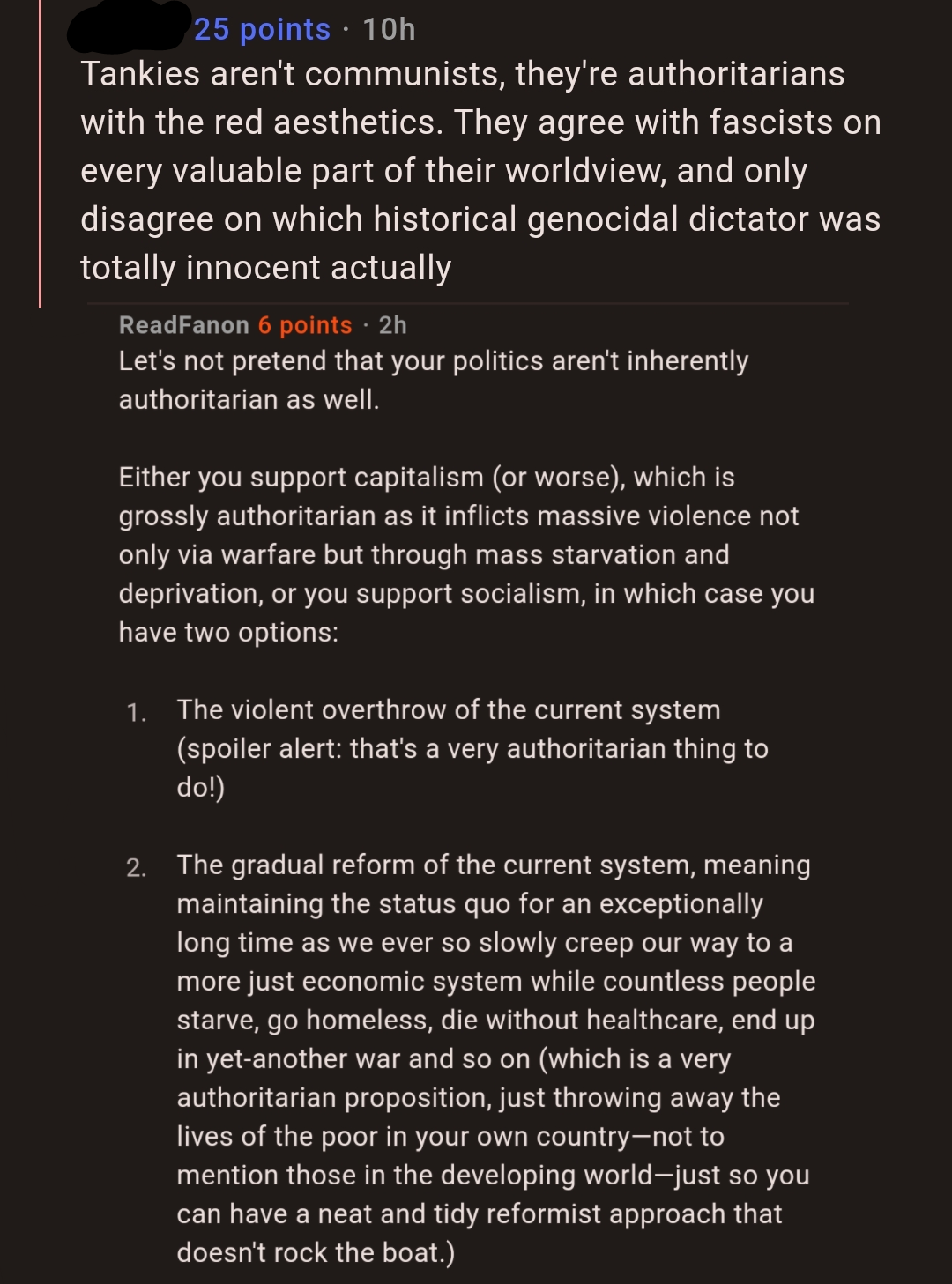This is a persistent myth that is shared amongst anarchists and RadLibs alike that the Soviets betrayed the Makhnovists by reneging on their so-called alliance with the Black Army, turning on them immediately after the defeat of the White Army.
This furnishes the anarchist persecution fetish and common narratives about how communists will always betray "the true revolution" and how Lenin was a tyrant.
The historical facts, however, paint a significantly different picture.
For one, you do not sign pacts with your allies. There was a military pact that was signed but, like the Molotov-Ribbentrop pact, this is something that occurred between two parties that were constantly at odds with each other and the pact was signed out of conditions where the interests of both parties were temporarily aligned. This simple fact escapes the historical revisionists constantly but, unsurprisingly, only when it serves their arguments.
Secondly, Makhno himself knew that this pact was only temporary. Upon the signing of the pact he had this to say in The Road to Freedom, the Makhnovists' mouthpiece, in October 13, 1920:
"Military hostilities between the Makhnovist revolutionary insurgents and the Red Army have ceased. Misunderstandings, vagueness and
inaccuracies have grown up around this truce: it is said that Makhno has repented of his anti-Bolshevik acts, that he has recognized the
soviet authorities, etc. How are we to understand, what construction are we to place upon this peace agreement?
What is very clear already is that no intercourse of ideas, and no collaboration with the soviet authorities and no formal recognition of these has been or can be possible. We have always been irreconcilable enemies, at the level
of ideas, of the party of the Bolshevik-communists.
We have never acknowledged any authorities and in the present instance we cannot acknowledge the soviet authorities. So again we remind and yet again we emphasize that, whether deliberately or through misapprehension, there must be no confusion of military intercourse in the wake of the danger threatening the revolution with any crossing-over, 'fusion' or recognition of the soviet authorities, which cannot have been and cannot ever be the case."
[Source: Nestor Makhno: Anarchy's Cossack by Skirda and Sharkey, pp. 200-201]
Clearly these are not the words that allies speak about one another.
At the successful Seige of Perekop, whereby the Red and Black Armies successfully broke the back of Wrangel's White Army forces and brought the Southern front to a conclusion, Makhno's aide-de-camp Grigori Vassilevsky, pronounced the end of the pact, proclaiming:
"That's the end for the agreement! Take my word for it, within one week the Bolsheviks are going to come down on us like a ton of bricks!"
[Source: Nestor Makhno: Anarchy's Cossack by Skirda and Sharkey, p.238]
The fact is that USSR furnished the Black Army with much-needed military supplies without which they would have been unable to continue fighting and Makhno was no pluralistic leader who was open to Bolsheviks; in fact, his army incorporated Bolshevik forces which defected to the Black Army and Makhno set his military secret police force, the Kontrrazvedka, to at first surveil the former Bolshevik military leaders along with the rising Bolshevik influence that had developed particularly around Yekaterinoslav, and then later summarily executed the Bolshevik leaders when they posed too much of a threat to his power due to commanding some of the strongest units in his army.
But that's a topic which deserves its own post...




Add "no bosses" to that list too.
Y'all think that any sort of construction or manufacturing is going to run in a self-organised fashion without foremen? Lol, good luck.
If you've never worked in a factory before, that's cool but there are much better ways of announcing this fact and I think that it's important to remember the old "No investigation, no right to speak" or, in their terms "In the matter of boots, I refer to the authority of the bootmaker".
I try not to focus too much on these types because I'm convinced that a couple of years of touching grass, working for a living, and spending time doing on the ground organising will bring these infantile urges in people to a conclusion in all but the most stubborn-minded. Although you can cut through these naive ideological positions by tracing out how there was (vulgar) vanguardism in their favourite historical socialist projects and how leadership was crucial to their functioning. That being said I have more important things to do with my time than engaging people with discussions on that stuff tbh.